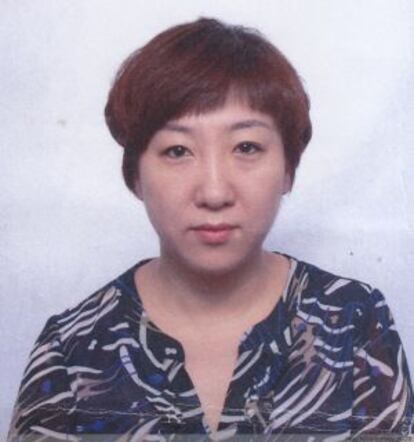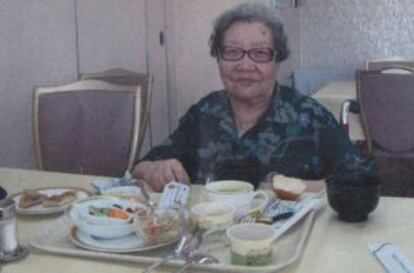Chinese con artist commits suicide after reading kidnapped daughter’s text
Lili Dai fled her native China for Spain after tricking hundreds of people out of their savings Her victims hunted her down in Madrid and took her family hostage

Just over a year ago, Lili Dai fled from China with her husband, daughter, parents and grandmother after stealing an estimated €40 million from at least 350 people by selling them homes she did not own.
She flew to Spain and moved into a large, detached house in San Sebastián de los Reyes, just outside the capital, with her husband, and rented a small apartment in the suburb of Aravaca, where she installed the rest of her family.
Meanwhile, back in China, the media had picked up on the case, which was garnering national attention. At the same time, the authorities began looking for her, and a judge issued an international arrest warrant for Dai and her mother and husband.
Several of the people from whom she had stolen money also began looking for her. Eventually, four men traveled to Spain on her trail. This proved relatively easy to follow: one of the families to whom Dai had “sold” a house at a low price had, in gratitude, given an iPad to Dai’s daughter that had a tracking application installed.
On March 4, 2013, the four men turned up at the apartment in Aravaca after ascertaining from the concierge where the family lived, and were unwittingly let in by Dai’s father. Dai’s daughter managed to send a text message warning her mother, who was at the house in San Sebastián de los Reyes, that they were being held hostage.
“The men say they want the money, that they aren’t going to kill us. I don’t know why these men are here, mother, save me,” read the next message.
I don’t know why these men are here, mother, save me,” read the next message
The men later took the girl’s cellphone, but she was able to send an email from a gaming site to her mother. “They want €3 million, but don’t come, they want to kill you,” wrote Dai’s mother on the sixth day of the hostage ordeal.
Dai could no longer bear the pressure, and that evening, April 3, along with her husband Zhiwei Chen, a former monk and preacher, took an overdose. He survived the suicide attempt, and when he came round, discovered his wife, who had hanged herself in the shower. She had left behind a note saying: “I am going to die unjustly.” Chen called the only friend he had in Spain who spoke some Chinese: José Luis Martínez, a real estate agent based in the southern region of Murcia, with whom the couple had done some business.

Martínez called the police, who then raided the apartment in Aravaca, arresting the four men and taking Dai’s family into protective custody.
The four men are still in custody while a provincial court continues to investigate the incident. Dai’s husband and his mother were also initially held, at the request of the Chinese authorities, but have since been released, and are awaiting extradition to China, provided that the Chinese authorities agree not to impose a sentence of more than eight years in prison, which is what the pair would face in Spain.
Many of Dai’s victims were young couples or retirees who were cheated out of their savings
The case has been covered extensively in China. Many of Dai’s victims were young couples or retirees who were cheated out of their savings, and in many cases borrowed money. Dai passed herself off as the niece of the Chinese vice president.
It is not clear who hired the four men, or whether they were criminals. Dai’s daughter and stepfather told police that the men had threatened to torture them.
The Spanish authorities say they have found no trace of the €40 million that Dai is alleged to have stolen.
Dai’s daughter is attending school while awaiting the outcome of the trial and her return to China with her father and grandparents.
Tu suscripción se está usando en otro dispositivo
¿Quieres añadir otro usuario a tu suscripción?
Si continúas leyendo en este dispositivo, no se podrá leer en el otro.
FlechaTu suscripción se está usando en otro dispositivo y solo puedes acceder a EL PAÍS desde un dispositivo a la vez.
Si quieres compartir tu cuenta, cambia tu suscripción a la modalidad Premium, así podrás añadir otro usuario. Cada uno accederá con su propia cuenta de email, lo que os permitirá personalizar vuestra experiencia en EL PAÍS.
¿Tienes una suscripción de empresa? Accede aquí para contratar más cuentas.
En el caso de no saber quién está usando tu cuenta, te recomendamos cambiar tu contraseña aquí.
Si decides continuar compartiendo tu cuenta, este mensaje se mostrará en tu dispositivo y en el de la otra persona que está usando tu cuenta de forma indefinida, afectando a tu experiencia de lectura. Puedes consultar aquí los términos y condiciones de la suscripción digital.








































